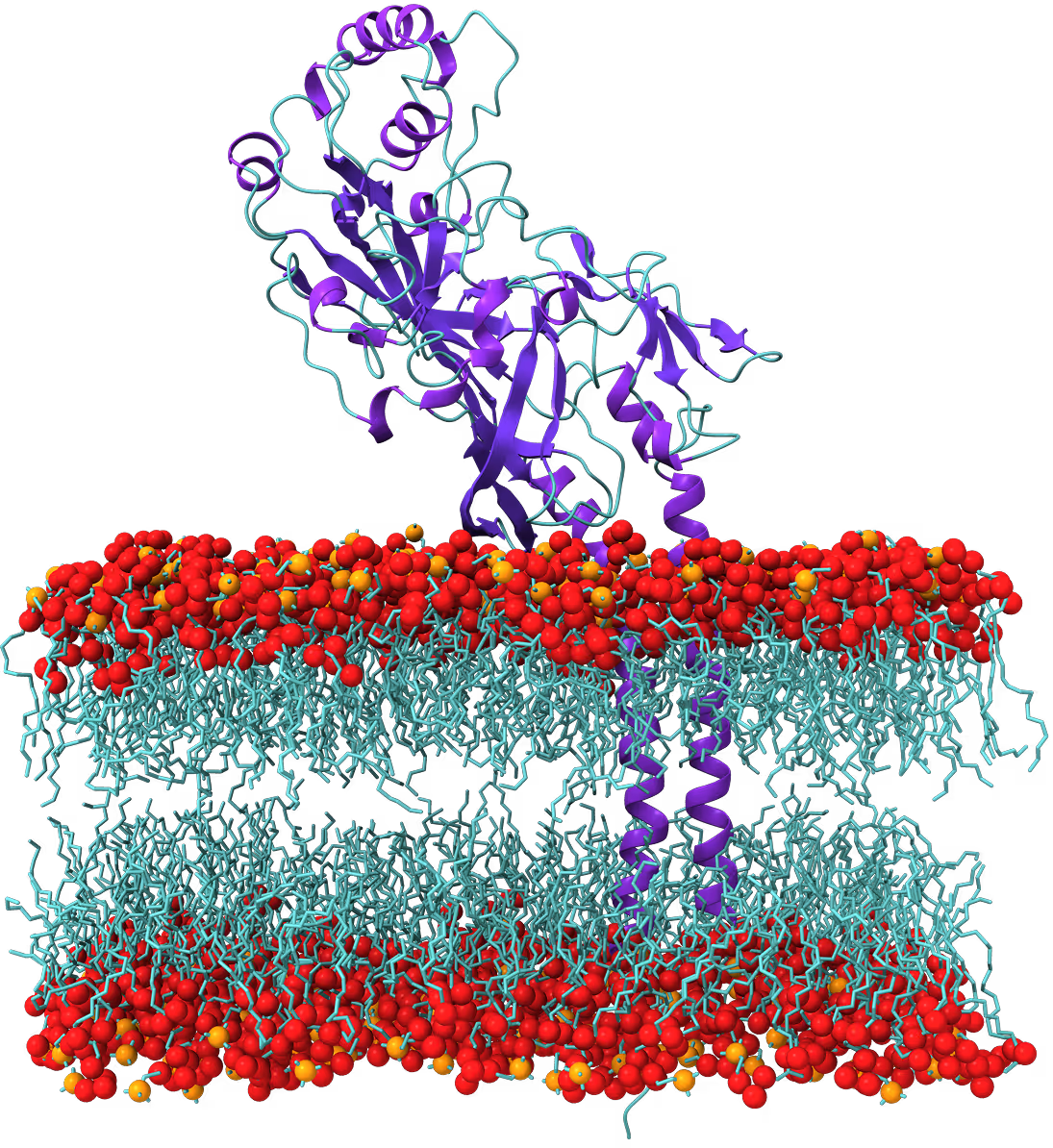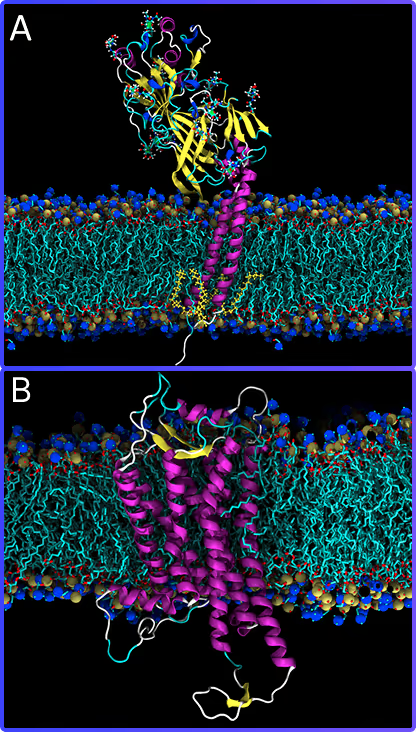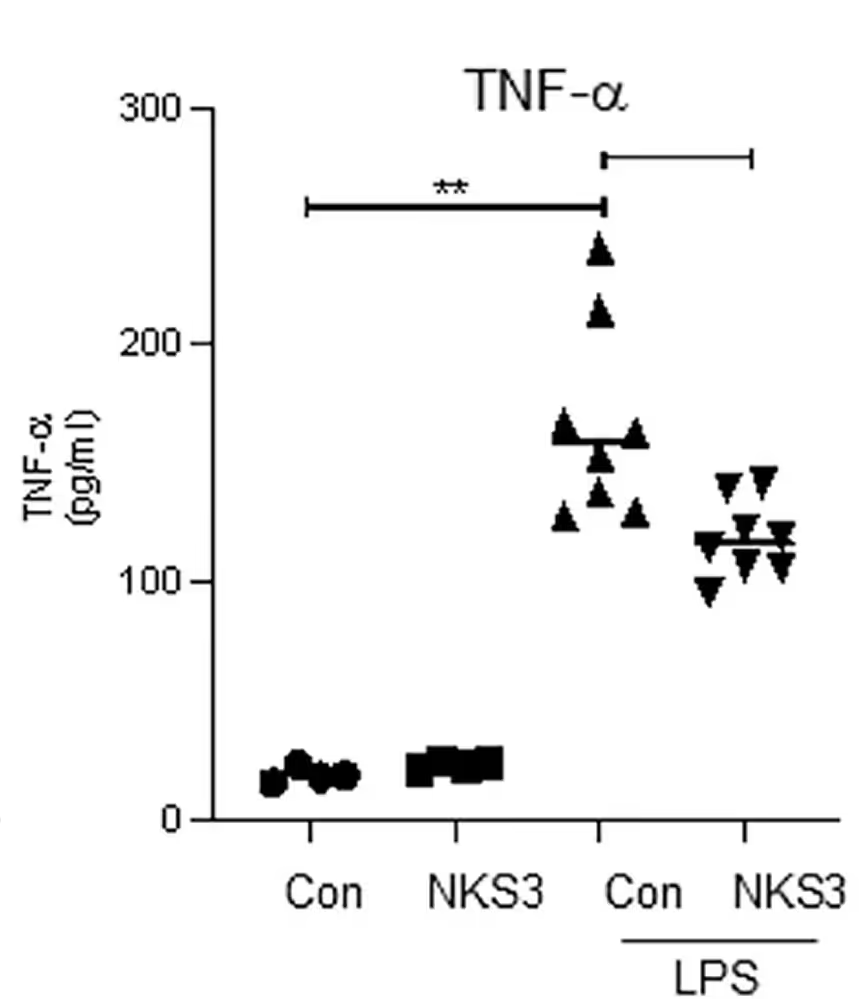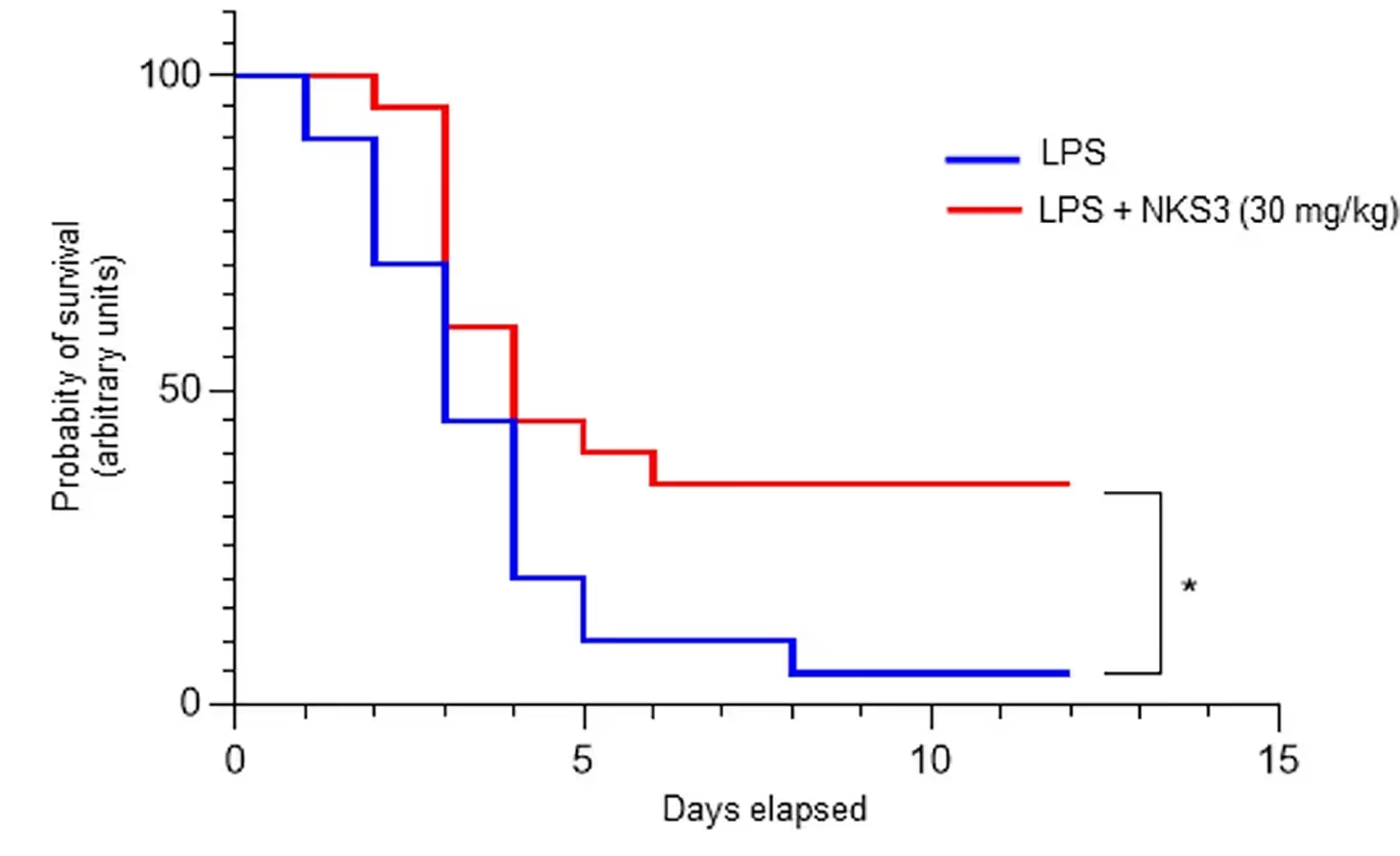Dual targeting for treating obesity and inflammation
Designing dual agonists of GPR120 and CD36

Fatty acid
analogues search was performed
Dual
agonists designed to GPR120/CD36
2
compounds active
in vivo
IND stage
of the project is currently undergoing

01/ Background
- GPR120 and CD36 are novel promising targets
for obesity treatment by modulating fat taste perception. - Agonists of GPR120 and CD36 decrease food consumption.
- Dual action leads to more pronounced effect.
- GPR120/CD36 agonists are promising anti-inflammatory agents.
02/ Methodology
- The first ever atomistic models of full-scale GPR120 and CD36 in their native membrane environment were built including the PTM.
- Performed extensive MD simulations.
- Extracted ensembles of representative protein conformations.
- Studied the mechanism of action of prospective fatty acid analogues using ensemble AI docking with ArtiDock.
- Virtual screening with proprietary AI models.
- Extensive in vitro and in vivo studies performed on
cell lines and murine models.
03/ Results
- Several highly potent compounds found
from the focused library of fatty acid analogues. - Hit compounds confirmed both computationally and experimentally in vitro and in vivo.
- The NKS3 and NKS5 compounds in murine obesity model show high efficacy in weight loss.
- These compounds proved to be CD36 and GPR120 dual agonists.

*NKS3-induced pro-inflammatory cytokine
concertation decrease
concertation decrease

of LPS-challenged mice
- NKS3 acts in TAB1/TAK1/JNK pathway via GPR120.
- NKS3 reduces inflammation in RAW 264.7 cells, acute lung injury model, kidney and liver inflammation models, septic shock and neuroinflammation models.
- The project has processed towards IND stage.

